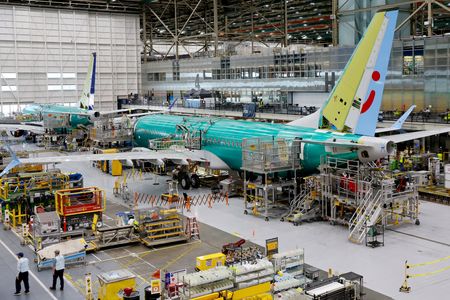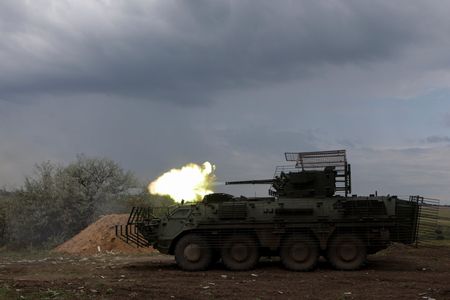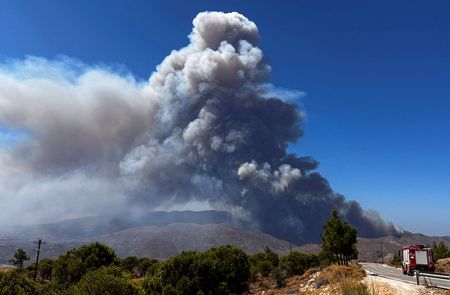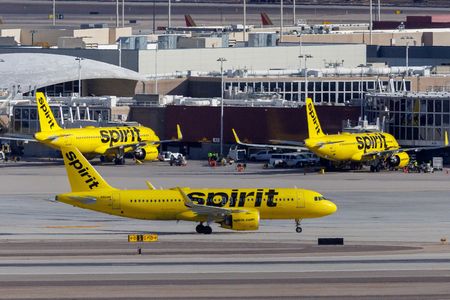By Dan Catchpole
SEATTLE (Reuters) -U.S. planemaker Boeing said on Tuesday that it delivered 48 airplanes in July, down from 60 in June but five more than a year earlier. It was the most deliveries by the company in July since 2017, when it delivered 58 aircraft.
Boeing continued to fall further behind European rival Airbus in deliveries this year.
Airbus handed over 67 jets in July despite having a growing number of aircraft unable to be delivered because it lacks enough engines. That was down from 77 in July 2024, but it lifted Airbus’ year-to-date tally to 373, compared to Boeing’s 328.
Airbus is also leading the U.S. planemaker in single-aisle jet deliveries, with 286 A320neo family jets compared to Boeing’s 243 737 MAX jets. About 66% of all commercial jets are single-aisle planes.
Boeing delivered 37 of its best-selling 737 MAX jets in July, 20 of which were for aircraft lessors and 17 for airlines. Boeing also handed over eight 787s, two 777 freighters and one 767 freighter. Airbus delivered five regional A220 jets, 54 of its cash-cow A320neo family, two A330s and six A350s.
Aircraft deliveries are closely tracked by Wall Street because planemakers collect much of their payment when they hand over jets to customers.
Boeing booked 31 gross orders in July, which included 30 for 737 MAX jets and one for a 787. The Republic of Iraq canceled one 787 order, though it still has seven 787s on order.
By the end of July, the aerospace giant had received 699 new orders this year, or 655 net orders after adjusting for cancellations and conversions. Its order backlog was 5,968 after adjusting for U.S. accounting standards.
Airbus has struggled with delayed deliveries from its largest engine supplier, CFM International, co-owned by GE Aerospace and Safran, but delays have spread to its RTX-owned rival Pratt & Whitney in the wake of a recent strike, the European planemaker said.
Airbus still projects that it will deliver 820 jets by the end of the year, a 7% rise from last year.
Boeing has not given guidance for annual deliveries. The U.S. company is working to stabilize production after a mid-air panel blowout on a new 737 MAX in January 2024 exposed widespread production quality and safety problems.
(Reporting by Dan Catchpole in Seattle; Editing by Jamie Freed)











